
Important results and "gaps" of the Corporate Income Tax Law
The Ministry of Finance has just issued Official Dispatch No. 5949/BTC-CST to relevant ministries, branches and agencies to solicit opinions on the draft Law on Corporate Income Tax. This draft is expected to be commented on at the 8th Session of the 15th National Assembly (October 2024) and approved by the National Assembly at the 9th Session of the 15th National Assembly (May 2025).
According to the Ministry of Finance, after more than 15 years of implementation, the current Corporate Income Tax Law has come into effect, positively impacting many aspects of the socio-economy. The Law has been completed in the right direction of reforming the tax, fee and charge system; making an important contribution to creating a favorable investment and business environment, ensuring fair competition among enterprises.
The application of preferential corporate income tax policies along with other related reform measures has contributed to improving the domestic investment environment, especially in attracting capital for socio-economic development.
However, in addition to the achieved results, the implementation of the Corporate Income Tax Law has also revealed some shortcomings and limitations. The Corporate Income Tax Law is revealing “gaps” in regulating new tax issues arising in the process of international cooperation such as preventing revenue erosion and profit shifting; global minimum tax, etc.
This shows that the amendment of the Law on Corporate Income Tax is very necessary at the present time to institutionalize the Party and State's policies and guidelines on reforming the tax policy system in general and corporate income tax in particular, on the other hand, to overcome shortcomings and overlaps; as well as to have appropriate solutions to overcome transfer pricing, prevent tax evasion, tax loss, and effectively limit profit shifting behaviors that erode the tax base.
It is expected that many taxes will be exempted, reduced, and given incentives.
The revised Corporate Income Tax Law Project consists of 5 chapters and 25 articles, including contents on tax bases and methods; corporate income tax incentives; supplements to regulations on preventing erosion of the global tax base...
Regarding the revised and supplemented contents, the draft closely follows the 7 policy groups in the proposal to develop the Law on Corporate Income Tax which has been approved by the Government, the National Assembly Standing Committee, and the National Assembly, including: Completing regulations related to taxpayers and taxable income of corporate income tax; completing regulations on income exempted from corporate income tax; completing regulations related to determining deductible and non-deductible amounts; adjusting corporate income tax rates for a number of groups of subjects in accordance with the new context; completing regulations on corporate income tax incentives; applying additional corporate income tax according to regulations on preventing tax base erosion.
To be consistent with the addition of regulations on the application of additional corporate income tax according to the regulations against global tax base erosion, the Ministry of Finance proposes to amend the regulations on the scope of adjustment in Article 1 of the draft in the direction of "regulations on taxpayers, taxable income, tax-exempt income, tax bases, tax calculation methods and incentives for corporate income tax, additional corporate income tax according to the regulations against global tax base erosion".
Regarding taxpayers, the draft proposes to supplement detailed regulations on taxpayers being enterprises and public service units on the basis of legalizing regulations that are being stably implemented in sub-law documents; clearly stipulate taxable income arising in Vietnam for foreign enterprises without permanent establishments in Vietnam, including income from the provision of goods and services in the form of e-commerce and digital technology platform business, regardless of the location of business. Supplement regulations on compliance with international treaties in case the international treaties to which Vietnam is a party have different regulations on permanent establishments in order to implement commitments; supplement regulations that enterprises subject to additional CIT according to regulations on preventing erosion of the global tax base are CIT payers.
Another notable content in the draft is the regulation on taxable income. According to the drafting agency, to be consistent with the proposal to supplement regulations on taxpayers and at the same time legalize sub-law documents, the draft stipulates in detail other incomes, including: income from capital transfer, securities transfer; income from real estate transfer, real estate transfer of real estate business enterprises; income from investment project transfer; income from transfer, lease, liquidation of assets (except real estate) and valuable papers, etc.
The draft also supplements regulations on taxable income arising in Vietnam of foreign enterprises with permanent establishments in Vietnam and of foreign enterprises without permanent establishments in Vietnam regardless of business location; amends regulations on tax payment for income of Vietnamese enterprises investing abroad.
In addition, the draft Law also supplements and amends regulations related to tax-exempt income, including adding regulations on the maximum tax exemption period of no more than 3 years for income from performing scientific research and technology development contracts, income from selling products made from new technology applied for the first time in Vietnam; Adding regulations on tax-exempt income of enterprises from production and trading activities of goods and services of enterprises with 30% or more of the average number of employees in the year being people with disabilities, people after drug rehabilitation, people infected with HIV/AIDS; Adding income of enterprises from vocational training activities specifically for people in drug rehabilitation, people after drug rehabilitation... to tax-exempt income.
Supplementing regulations on applying a preferential tax rate of 15% to the income of press agencies from press activities other than print newspapers. Print newspapers will continue to apply the rate of 10% as currently regulated.
At the same time, 4 more tax-exempt incomes are added, including: (1) Income from carbon credit transfer and first-time green bond transfer after issuance; (2) Direct support from the state budget, state compensation according to law; (3) Difference from revaluation of assets for equitization, innovation, and restructuring of enterprises in which the state holds 100% of charter capital; (4) Income of public service units from providing public service services, etc.
Source: https://laodong.vn/kinh-doanh/bo-tai-chinh-muon-sua-doi-bo-sung-nhung-khoang-trong-cua-luat-thue-tndn-1352668.ldo


![[Photo] Buddha's Birthday 2025: Honoring the message of love, wisdom, and tolerance](https://vphoto.vietnam.vn/thumb/1200x675/vietnam/resource/IMAGE/2025/5/12/8cd2a70beb264374b41fc5d36add6c3d)
![[Photo] Prime Minister Pham Minh Chinh works with the Standing Committee of Thai Binh Provincial Party Committee](https://vphoto.vietnam.vn/thumb/1200x675/vietnam/resource/IMAGE/2025/5/12/f514ab990c544e05a446f77bba59c7d1)


![[Photo] Prime Minister Pham Minh Chinh starts construction of vital highway through Thai Binh and Nam Dinh](https://vphoto.vietnam.vn/thumb/1200x675/vietnam/resource/IMAGE/2025/5/12/52d98584ccea4c8dbf7c7f7484433af5)









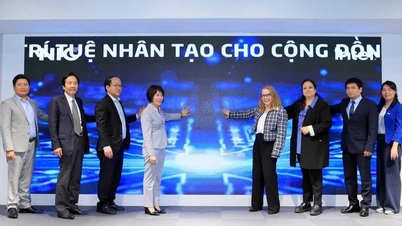


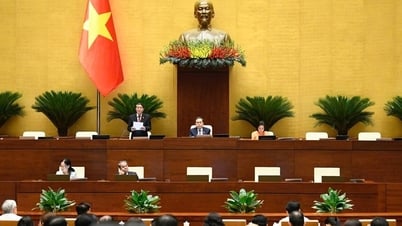
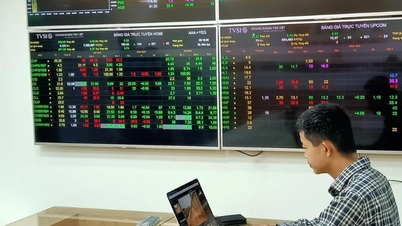










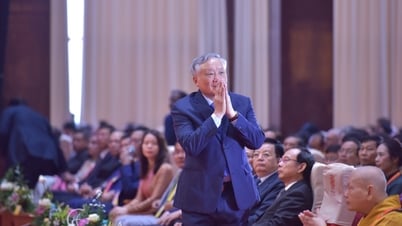

















































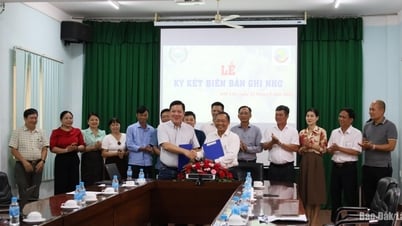
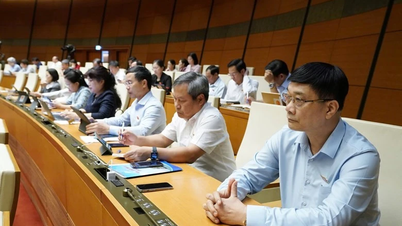















Comment (0)